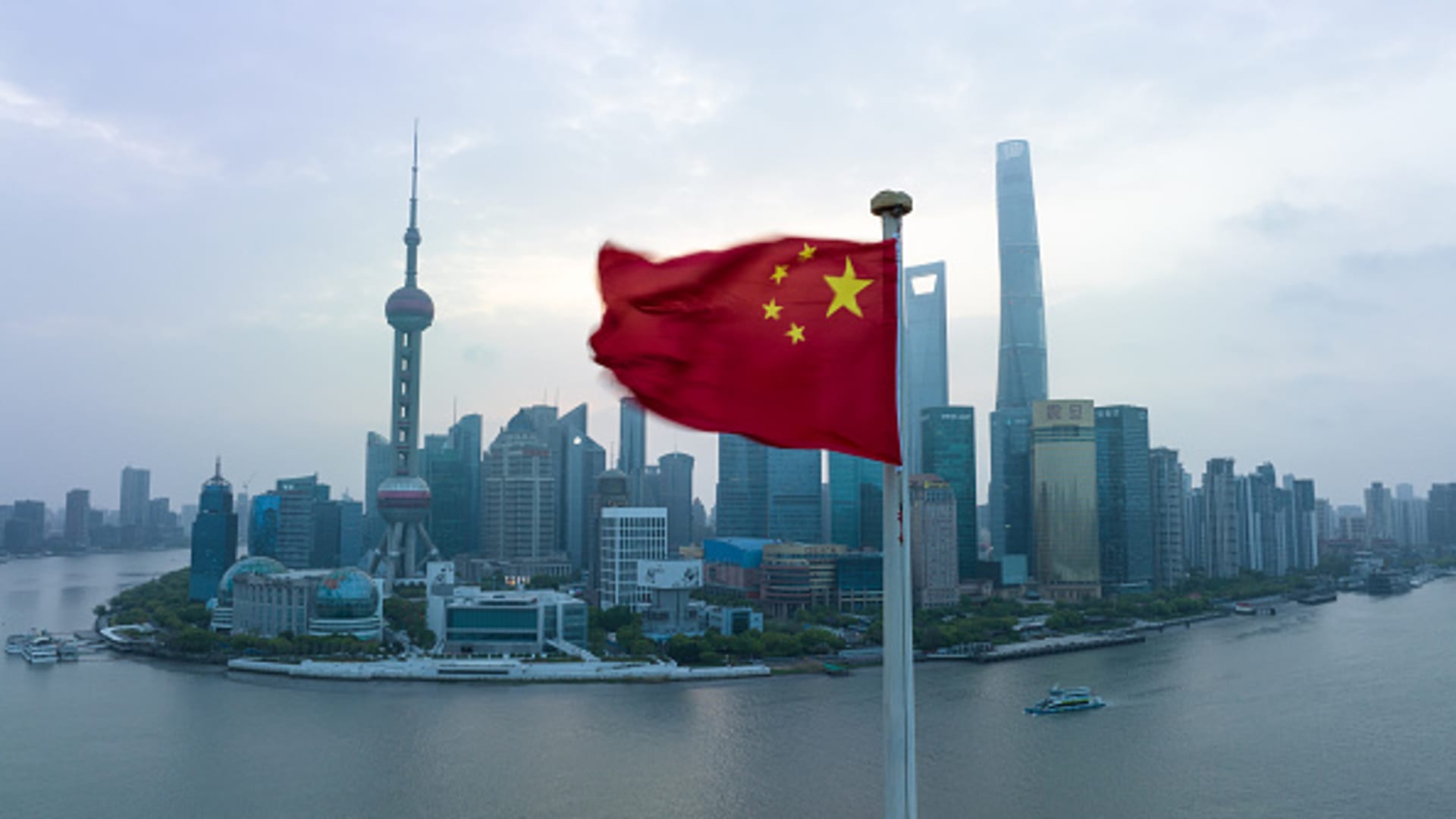China’s market rally faces test as U.S. trade rift flares anewnomadictrails
The Chinese national flag fluttering with the Lujiazui Financial District in the background.
Vcg | Visual China Group | Getty Images
China’s stock market rebound may be showing signs of strain as renewed U.S.-China trade tensions threaten to derail investor optimism.
After months of relative calm, Washington’s fresh warnings over Beijing’s rare earth export controls and renewed trade tensions have revived fears of another tit-for-tat trade cycle.
Chinese shares had recently rallied to a multi-year high on expectations of government stimulus and a recent inflow of foreign capital into Chinese equities. Mainland China’s benchmark CSI 300, which tracks major stocks in Shanghai and Shenzhen, rallied almost 20% since the start of the year to Oct. 9, while the Hang Seng Index surged around 33% in the same period.
However, the possibility of that rally continuing was predicated on stability in geopolitical risk, especially on trade. With tariff rhetoric back at the forefront, analysts warned sentiment could quickly unravel. Both indexes lost over 2% on Monday.
Markets had priced in détente ahead of a potential meeting between U.S. President Donald Trump and President Xi Jinping. But those expectations have faded.
“I think it’s not very likely,” said Sean Darby, chief global strategist at Mizuho Securities, when asked if such a summit would materialize now.
“Perhaps the United States has been taken by surprise by how strong the backlash has been from China… we’re going to have a much more difficult couple of weeks now, because markets had expected some sort of truce.”
If neither side were to blink, the U.S. and Chinese economies would lead the global economy into a deep recession, if not a depression.
Ed Yardeni
President of Yardeni Research
Darby added that global equities were “perfectly priced” and ill-prepared for a renewed trade confrontation. “Positioning has been very aggressive, both in equities and in credit… everything that could be perfectly set for markets to do well.”
The MSCI World index, which tracks over a thousand large and mid-cap companies from 23 developed markets, rose almost 17% since the start of the year before Trump on Friday said the United States would impose new tariffs of 100% on imports from China.
The surprise re-emergence of tariff conflict risks grinding equities sideways, if not worse. “Equity markets now are going to trade sideways at best, if not have a further pullback,” he said.
An already ‘overbought’ market?
Goldman Sachs warned that the uncertainty now spans a wider range of scenarios, from renegotiation to retaliation. While the bank said the most likely outcome remains an extension of the May tariff truce, it warned the latest moves could signal China is seeking concessions of its own, and there is still a chance the two superpowers may revert to the triple-digit tariffs imposed earlier this year.
“Higher expectations along with greater threatened policy responses clearly raise the risk of a more market-negative outcome in which the U.S. and China reimpose triple-digit tariffs,” the investment bank’s strategists said in a note.
And the stakes are high if neither side caves. “If neither side were to blink, the U.S. and Chinese economies would lead the global economy into a deep recession, if not a depression,” said Ed Yardeni, President of Yardeni Research.
Additionally, the news of the latest U.S.-China spat came when Chinese equities had become “very overbought,” with gains concentrated in a handful of stocks like Tencent, Alibaba, NetEase, said Arthur Budaghyan, chief emerging markets and China strategist at BCA Research.
“Overbought conditions leave Chinese offshore stocks vulnerable to a pullback,” he said.




Post Comment